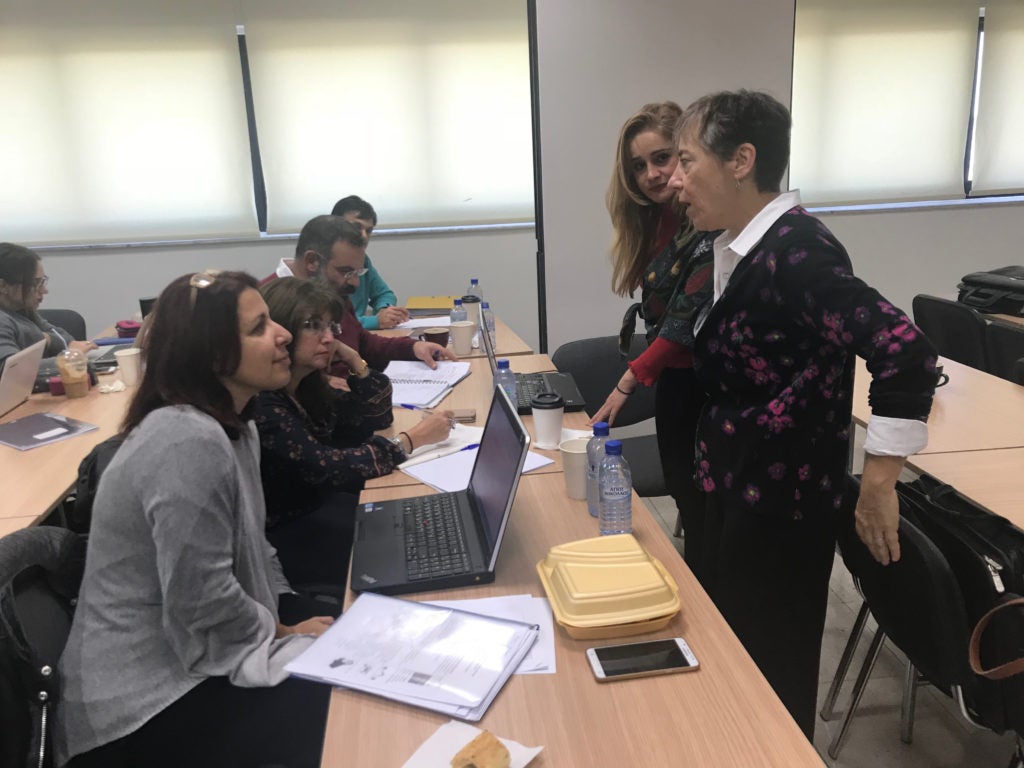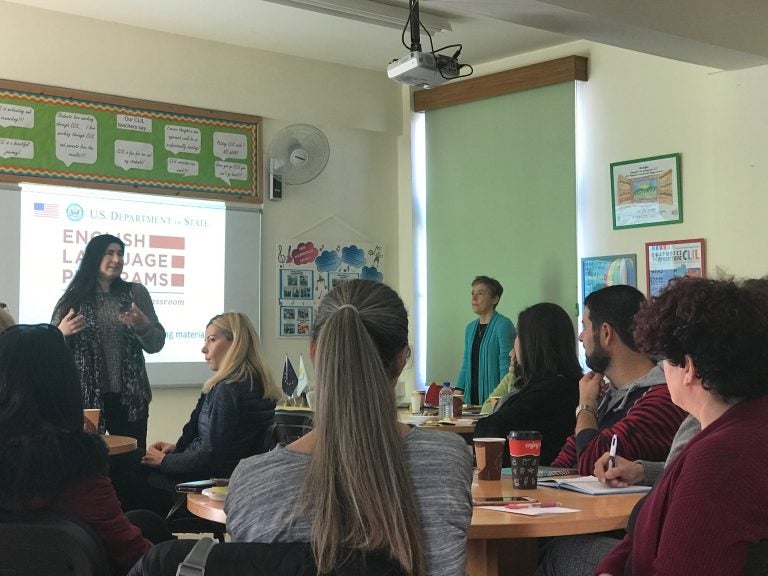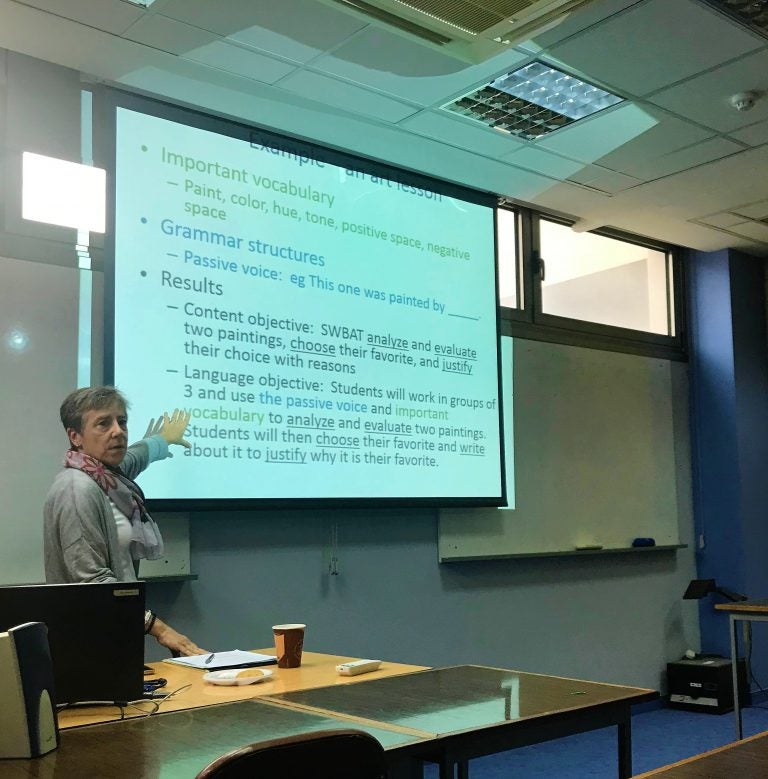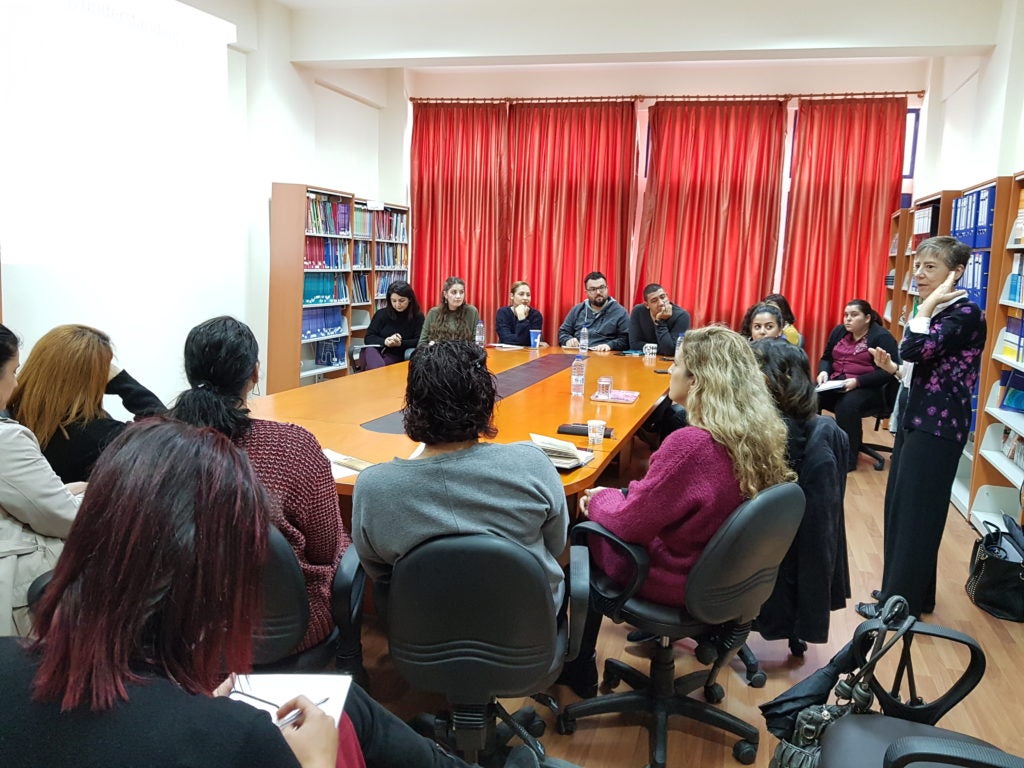Dr. Juli Sarris, Adjunct Faculty at the Universities of Colorado Boulder and Denver, completed a two-week Specialist project in Cyprus in which she led workshops on a variety of topics, including teacher peer observations, assessment, CLIL methods, and teaching in multicultural/multilingual classrooms with a focus on reducing bias. The project spanned both sides of the United Nations Buffer Zone with workshops in the Greek Cypriot community in the south as well as in the Turkish Cypriot community in the north. Participants included in-service public school teachers, intensive English program teachers, and pre-service teachers at universities.

“What I liked the most were the teachers I met and worked with” Sarris noted. “I appreciated exchanging teacher stories, strategies, and ideas with them, and noticing with them how much we all have in common as teachers and as people.” Through this project, Sarris observed the similarities in passion and commitment that teachers have throughout Cyprus and across the globe which reinforced to her “the important role that teachers play in students’ lives and in our collective future.”

Dr. Sarris drew from her work in classroom observation at the Universities of Colorado Boulder and Denver to prepare the workshops for this project. She regularly conducts observations with teachers working on their masters degrees and shared these materials including rubrics, guidelines, and best practices with workshop participants. Sarris’s approach to teacher observation centers on positivity and empowerment rather than judgement. In her own observations and in sharing best practices with workshop participants, she focused on the methods and strategies used to scaffold and differentiate instruction for multicultural, multilevel, and multilingual students.

“During the workshop, I was struck by how engaged and enthusiastic these teachers were in learning a new strategy for improving their practice,” Sarris explained. “Their focus was firmly grounded in doing the hard work of being the best teachers they could be for their students.” The Specialist added that she was inspired by the reaction of the Cypriot participants she worked with. The teachers were so “engaged and enthusiastic,” even when presented with ideas and new ways of thinking that may have been very different from typical classroom norms.
In addition to impacting Cypriot English teaching communities, Sarris’s Specialist project also influenced her own perspective towards teaching in the United States as well as her family and friends’ understanding of Cyprus. “I think the project has enabled me to bring cultural comparisons and contrasts into my work with in-service teachers,” Sarris shared. “I can better expand their understanding of how other countries “do school” and how teachers in Cyprus have similar concerns, challenges, and successes that U.S. teachers do.” Following this project, Sarris has also been able to offer an expanded understanding of the role of English outside of the United States to in-service teachers in Colorado, which has helped them empathize with students who immigrated to the United States.

While in Cyprus, Dr. Sarris shared stories about her work with friends and family back home and, in addition, she shared stories of adventures in navigating the local grocery store and trying new foods, for example. In particular, family and friends back home enjoyed hearing and seeing stories of an octopus dinner and a trip to a local church. “This was all a learning experience for many of my friends and family, most of whom knew very little about Cyprus and none of whom had ever been there,” Sarris explained.
The role of citizen diplomat through the English Language Specialist Program was new to Sarris and, as she noted, “such a remarkable privilege.” She explained that being in the classroom and observing outstanding teachers in action abroad is one of the most inspiring and rewarding parts of her job as an educator. “The teachers I worked with, both Greek and Turkish Cypriot, reminded me of this important role, and re-energized my own teaching and interactions with my own students when I returned to the United States,” explained Sarris.

Dr. Julia Sarris holds a PhD in Education, Social, Multicultural and Bilingual Foundations from the University of Colorado Boulder. She also holds an MA in Linguistics/TESOL. She has taught English as an additional language in the United States for many years, with students from more than 50 different countries. She currently teaches K-12 teachers through the Universities of Colorado Boulder and Denver. Dr. Sarris’s teaching philosophy is centered on her students, and she believes in teaching every student, every day such that all students can reach their potential. She feels that to reach that goal, teachers need the best training and support possible, particularly for teachers working in multicultural and multilingual classrooms. Dr. Sarris and her husband live in Boulder, and enjoy hiking, camping, and being outdoors in Colorado’s mountains.

